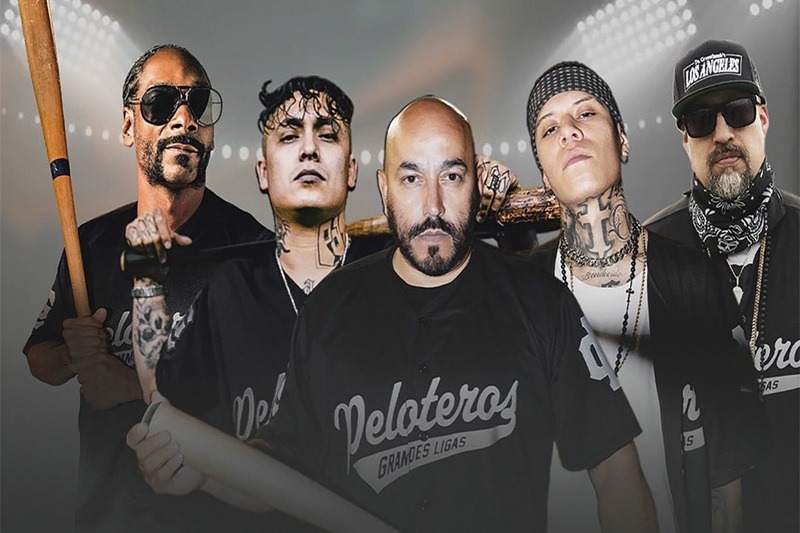History of Mexican Rap
Mexico’s proximity to the United States allowed the rap movement to arrive faster than in other Latin American countries. For this reason, in 1979, comedian Memo Ríos presented “El Cotorreo,” a Spanish cover of The Sugarhill Gang’s song “Rapper’s Delight.” By the 1980s, certain elements of the rap movement, such as graffiti artists, breakdancers, and MCs, could already be seen in Mexico. However, during these early years, there was still a lot of confusion about the whole genre, so it wasn’t until the 1990s that rap began to develop steadily in Mexico.
It is important to mention that rap reached the Latin American country thanks to families and friends who settled in the United States and recommended some rap records to acquaintances in Mexico.
During these years, Mexican rap was propelled by Pato Machete, a musician from Nuevo León, as well as by Cartel de Santa and Control Machete, who were responsible for the most impactful boom in rap in Mexico at the time.
These talents allowed Mexican rap to be seen not just as a fad but as a cultural movement that influenced younger generations. In this regard, it is worth noting that Mexican rap has evolved significantly in recent years, and you can now see it combined with other genres, which has allowed this type of Mexican music to expand successfully around the world.
Iconic Mexican Rap Artists
Mexican rap is an influential genre in the country, which is why several artists play a significant role in the development of the genre both nationally and internationally. Here are some of the iconic artists of Mexican rap:
Control Machete
This Mexican hip-hop group originated in Monterrey, Nuevo León, and was composed of scratcher and keyboardist Antonio DJ Toy Selectah Hernández, vocalist Patricio Chapa Elizalde, known by his nickname Pato Machete, and vocalist Fermín IV, known as Fermín Caballero. The group stood out for its lyrics and rhythm, combining the culture and music of northern Mexico with the rap genre, creating a musical movement known today as Avanzada Regia. From the beginning, Control Machete was a sensation, making them one of the legendary groups in Mexican rap. Their first album, “Mucho Barato,” was released in 1996 under PolyGram. Currently, the group is on an indefinite hiatus.

Cártel de Santa
Another influential Mexican rap group is Cártel de Santa, also formed in Nuevo León. They started in 1996 under different names and members before adopting their current style and name. The group consists of vocalist Babo and Román Rodríguez, known as El Mono. Dharius was also part of the group but left in 2013 due to personal issues. One of their most important tracks is “La Plaga,” a song they collaborated on with Arianna Puello, which had significant social relevance as it speaks about power and dominance in the Mexican rap world; the song describes buying their music as a plague or virus that spreads uncontrollably. Cártel de Santa is also known for addressing themes related to violence and corruption in Mexico.
Santa Fe Klan
Ángel Jair Quezada Jasso, known as Santa Fe Klan, was born in Guanajuato City and stands out in the rap world for incorporating cumbia and regional Mexican rhythms into his songs. He began recording his own songs at the age of 13, and by 14, he had his own studio. He decided to move to Guadalajara in search of better artistic opportunities, where he joined Alzada Récords, a group dedicated to promoting Mexican rap. This is where he recorded his first major productions. One of his most important singles is “Grandes Ligas,” which he recorded with Snoop Dogg and Lupillo Rivera. He has also collaborated with Calibre 50 and Beto Sierra. Santa Fe Klan won the Award for Independent Song from the Society of Authors and Composers of Mexico in 2021.
Iconic Mexican Rap Songs
Due to their significant social and cultural impact, several songs hold great importance in the world of Mexican rap. Here, we’ll talk about some of them:
“Comprendes Mendes” by Control Machete
This track is an anthem of resistance and the stance of someone who refuses to be controlled. “Comprendes Mendes” has a defiant language that speaks about people who underestimate the abilities and intelligence of others. It also speaks disdainfully of those who don’t recognize or value you. The song expresses distrust towards the system and authority figures, making it a sort of protest against those in power.
“La Plaga” by Cártel de Santa
“La Plaga” is an iconic track in the world of Mexican rap because it is considered a declaration of power and dominance in the Spanish rap scene. Cártel de Santa compares rap to a virus or plague, primarily in the way it spreads uncontrollably. The song aims to highlight the reach of rap and the intensity with which it impacts its audience. Additionally, “La Plaga” seeks to emphasize that the rap genre is inescapable and omnipresent.

“Grandes Ligas” by Santa Fe Klan
This song uses baseball as a metaphor to talk about success and the struggles of some people on the streets. The track equates being a baseball player to being important in the drug trade and the music business. Therefore, reaching the “big leagues” is a way to contextualize achieving a higher level in the world of drugs and the music industry. The song also speaks about the violence and risks associated with this lifestyle, highlighting the influence of narco-culture both in music and in Mexican society.
Cultural Impact of Mexican Rap
Mexican rap holds a significant place in the country’s music scene. This genre has influenced other genres and has crossed borders, forming musical hybrids through unexpected collaborations.
The New Wave of Mexican Rap
Due to the notable development of rap today, emerging artists have gradually established a precedent for change. Here are a few:
Aczino
Mauricio Hernández González, better known as Aczino, was born in Nezahualcóyotl, in the State of Mexico. He is considered one of the best Mexican freestylers, having made a significant impact on the rap scene. Aczino won the title of champion at the international freestyle championship in 2017, 2021, and 2022. Some of his most important songs include “Eternamente” and “Vivir es soñar.”
Gera MX
Gerardo Daniel Torres Montante, better known as Gera MX, was born in San Nicolás de los Garza, Nuevo León. Besides being a rapper, he is also a composer and has achieved several successes. Some of his best-known songs are “Botella tras botella,” in which he collaborated with Christian Nodal, “Huracán,” “Invisibles,” “Nunca te puedo alcanzar,” and “Se me olvidó.” Gera has an introspective style.
Ms Nina
Jorgelina Andrea del Valle Torres, better known as Ms Nina, has a significant cultural impact on rap due to her provocative style and influence within the LGBTQ+ community. Some of Ms Nina’s most well-known songs are “Las reinas,” “Despacio,” “Tu sicaria,” “Los Ángeles,” and “Chupa chupa.”

Mexican rap has established itself in the music industry thanks to its unique blends and ways of expressing social issues faced every day, allowing its audience to connect with the lyrics of their songs.
Learn all about: The best Big Bang Theory episodes: A Comprehensive Guide









